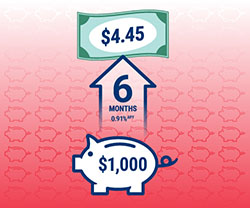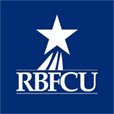Let’s Count the Ways to Save: Certificate Accounts
It’s easy to save at a credit union like RBFCU. You can get started with as little as $1, and your money is insured up to $250,000 per individual depositor by the National Credit Union Administration (NCUA). It’s risk-free investing with guaranteed growth!

The next step is to build your available money — and take advantage of the higher return — with a certificate account. The rate of return on a certificate account can often be four times more than that of a savings account
While a certificate account offers a higher return (a higher annual percentage yield, or APY), there are more things to consider when trying to invest in one compared to a standard savings account, including:
- Minimum investment. It’s much higher than a standard savings account. A $1,000 minimum deposit is not uncommon when starting a Certificate Account.
- Term, or timeframe. Once you’ve decided the amount you’ll use to fund the certificate, you’ll need to decide how long you can keep the money invested. This is the “term.” It can range anywhere from a few months
to a number of years.
- Tiered dividends. Depending on the term of your investment in the certificate, you could receive a higher rate on your dividend (the amount of money you collect). For example, a certificate requiring you to keep your money invested in the
certificate for 11 months could have a dividend rate of 1.5%. If you committed to keep the money in the certificate for 84 months (seven years) you could receive a rate closer to 3%.
- Automatic renewal. If you choose, you can keep your money invested in a certificate account when it matures. A certificate matures when it reaches the completion of the term of the investment. It’s possible that you can get a higher
APY when you re-invest.
- Compounding. At regular intervals, often every month, the amount of money in your certificate is compounded. It’s a process whereby interest is credited to an existing principal amount as well as to interest already paid.
- Early withdrawal penalty. If you withdraw money from your certificate account before the completion of the term (before the certificate matures), you will pay a penalty. The amount can vary, so make sure you know the details before you invest. Your aim should be to only invest in a term when you are reasonably assured you do not need those funds.
The Growth of Money in a Certificate Account
The first image shows an example of an RBFCU Certificate account with $1,000 invested for 6 months with the example of a 0.91% APY.
The second image shows an example of an RBFCU Certificate account with $1,000 invested for 24 months with the example of a 1.62% APY.
 |  |
